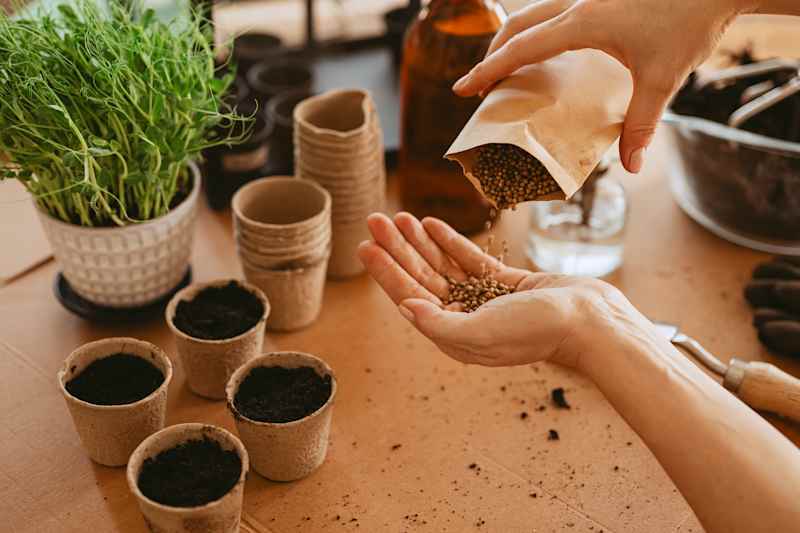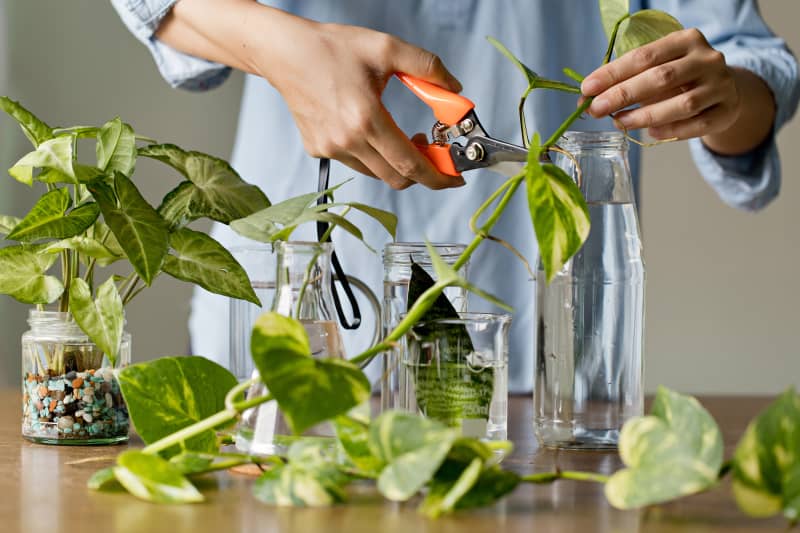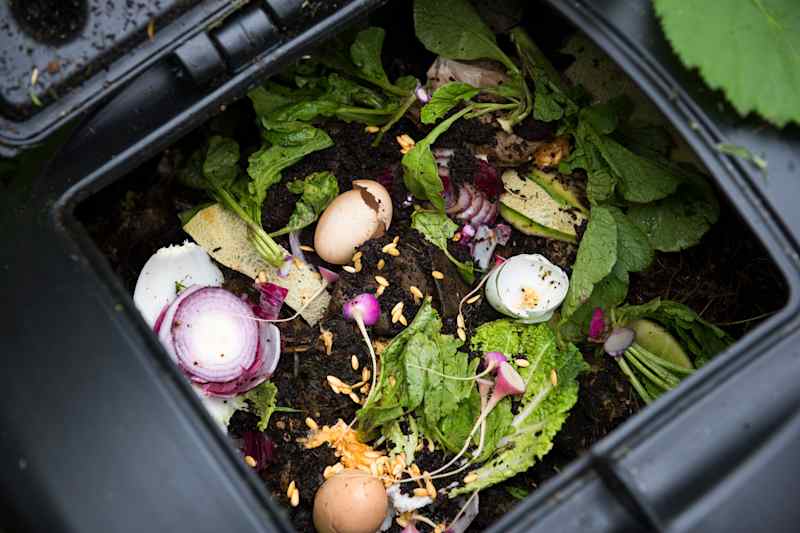If a brief visit to your nearby nursery for some compost often leads to you departing with an overflowing cart filled with plants and decorations along with a substantial invoice, then perhaps it’s time to consider ways to enhance your garden at no cost. While you
can
attain a vibrant and healthy lawn by breaking the bank; alternatively, you can achieve a comparable result through investing your time and labor rather than pouring money into it.
When it comes to finding gardening tools, you might be overlooking a wealth of unused resources right under your nose. The key lies in knowing where to search. Exploring municipal programs, participating in online exchange communities, or rummaging through your attic may uncover an abundance of gardening materials at no cost. Give these suggestions a try if you aim to cut expenses and enjoy a thriving garden area.
Where to Locate Free Gardening Supplies
Investigate public services
Stephen Lucke is the creator of
Gardopia Gardens
, an urban micro-farm and educational hub based in San Antonio, Texas. Lucke, who focuses on instructing individuals about establishing food systems within their homes and schools, suggests exploring the local free resources available in your region.
“He mentions that numerous municipalities, such as San Antonio, provide free or inexpensive mulch and compost derived from repurposed garden clippings. This serves as an excellent method to enhance soil quality, conserve water, and minimize weed growth without significant expense.” Checking your local government’s webpage would likely reveal which programs they offer.

Store seeds for planting next spring.
If expanding your collection isn’t an immediate priority, collecting seeds from your current blossoms can be a simple method to bring vibrant growth back into your outdoor space. Simply gather these seeds once the flowers begin to wilt towards the close of the growing period and ensure they’re stored correctly till planting time arrives again. Edwin Dysinger, a seasoned horticulturist and co-founder of
Seedtime
recommends preserving seeds from self-fertilizing plants like tomatoes, lettuce, peppers, legumes, sunflowers, marigolds, and zinnias.
He mentions that beans and peas might be the simplest plants to gather seeds from. Allow them to become entirely dried out on the vine prior to harvesting,” he states. If you’re not keen on legumes, consider collecting pepper seeds as an alternative. According to Dysinger, peppers are known for being self-pollinated with accessible seeds. Keep the pepper fruits you wish to extract seeds from attached to the plant until they reach full ripeness, ensuring proper maturation of the seeds. Afterward, pluck them, slice open, and store the seeds.
Utilize tools from nearby library facilities.
Looking for a mower but short on storage space? Consider renting one from a nearby tool library at little to no cost through an annual membership. As Lucke advises, “Rather than purchasing costly equipment, consider borrowing or sharing with neighbors, or see if your municipality features a tool library.” This approach works well for occasional-use items such as a hedge trimmer or rotavator. Additionally, many hardware shops provide rental services where you can get these gadgets for a fraction of their purchase prices.

Propagate existing plants
Plant propagation sounds like something from a high school biology textbook, but don’t let the technical jargon put you off this easy way to create new plants for free. If you’re growing plants like buddleja, petunia, fuchsia, verbena, or
hydrangea
, you can take softwood cuttings in spring or early summer and root them in soil or water.
You can also
propagate herbs
such as rosemary, thyme, and mint with cuttings for your herb garden. Within around two to four weeks, root systems will have developed from which a whole new plant can grow. If you don’t have any species you want to create more of, ask friends and neighbors if they would mind you taking a small cutting of their desirable plants. Voilà! Free greenery for your garden!
Upcycle unwanted items
Garden enthusiasts appreciate how upcycling offers dual benefits — benefiting both the environment and your finances. Examine the unused objects around you. For instance, an abandoned drawer from discarded furniture might transform into a charming elevated planter box, whereas assorted dishes could function as individual pots. Even everyday packaging materials can find new life in your garden. Consider germinating seeds in empty egg trays, repurposing cut plastic bottles into makeshift drip irrigation systems, or scattering recycled wine corks over soil as natural mulch.

Make your own compost
Lucke describes
making compost at home
As “a sustainable method for cultivating healthy soil at minimal cost.” Essentially, you can transform waste materials directly into a valuable resource that will enhance your garden’s growth, requiring negligible effort or expenditure. Simply incorporate items ranging from gardening residues to animal fur and grass cuttings into a composter or compost pile, then allow the microbes to work effectively.
Eager to take an additional step? Try making compost tea. As Lucke points out, this natural fertilizer, created by soaking compost in water, enhances microbial activity in the soil and provides your plants with a rapid nutrient boost—using only resources you already possess.
Explore nearby swapping or gifting communities.
“If you monitor the ‘free’ section on
Facebook Marketplace
You can discover various items suitable for your garden,” Dysinger recommends. “For instance, pallets are frequently obtainable for free via Facebook Marketplace or from establishments that consistently handle deliveries. These pallets can serve multiple purposes such as constructing sides for compost bins, setting up fences, creating trellises, or anything else you might dream up.
If your local online groups don’t get your green juices flowing, ask around among friends, neighbors, and colleagues instead. Remember that swapping and gifting work both ways – if you have an excess of saved seeds or propagated plant babies, offer them out to your local community so that others can enjoy the pleasure of free gardening goods.


